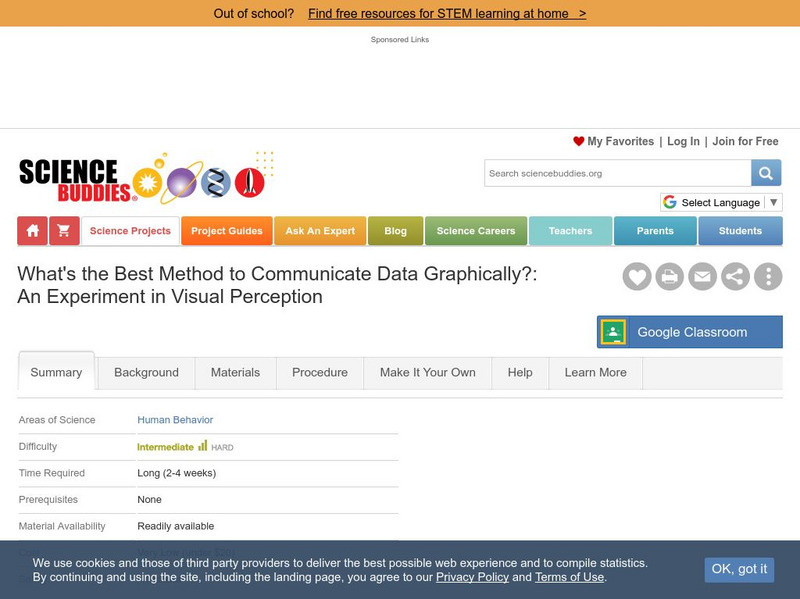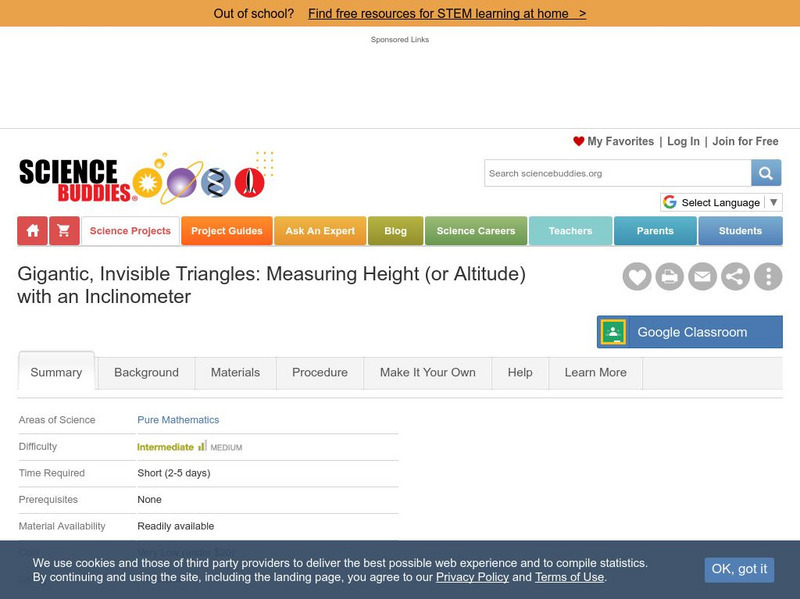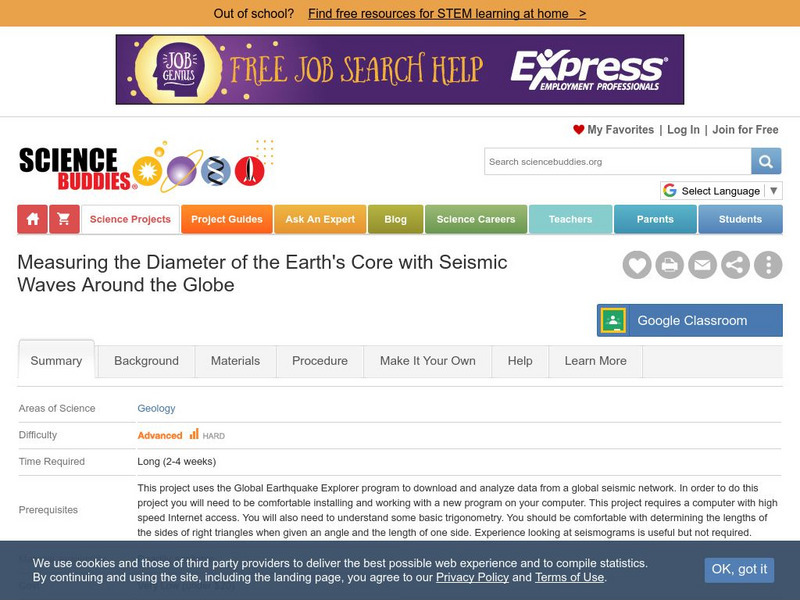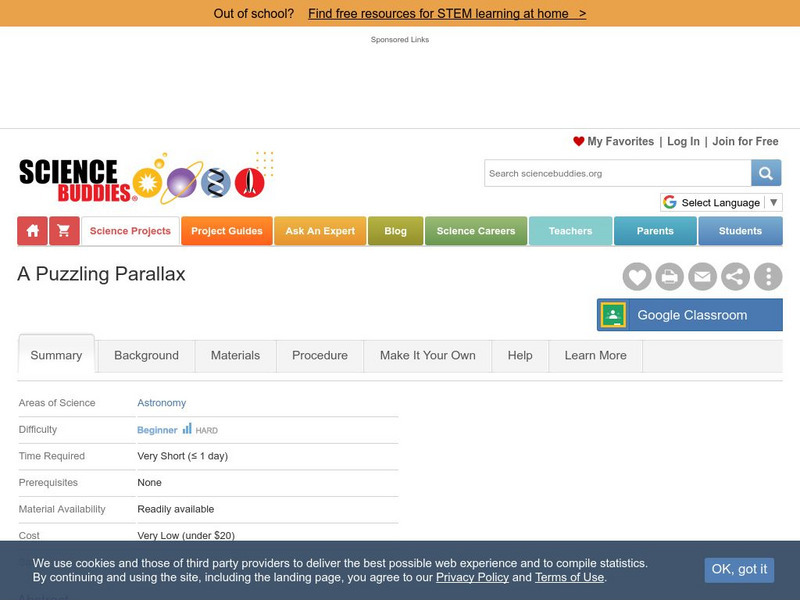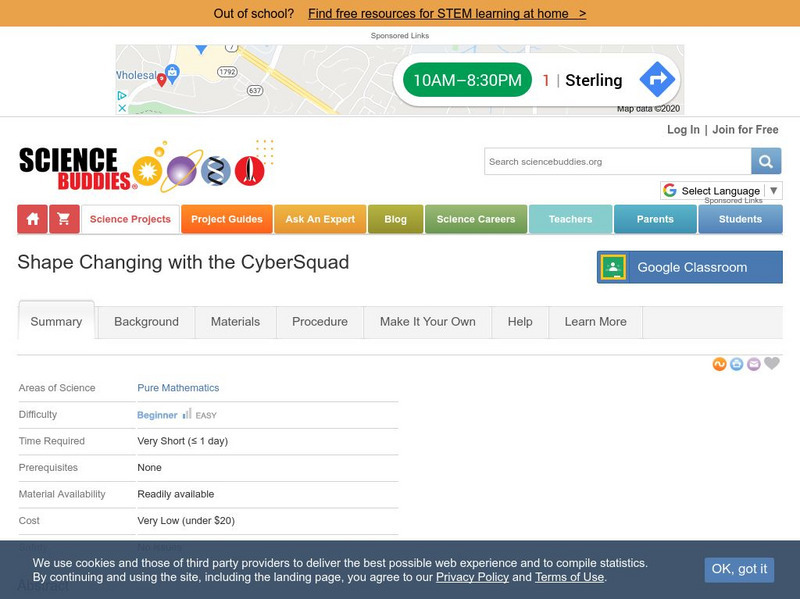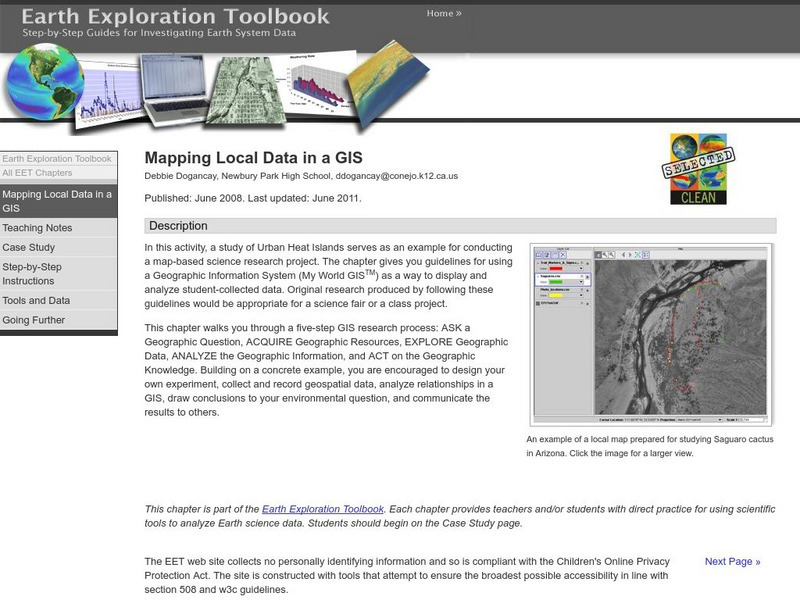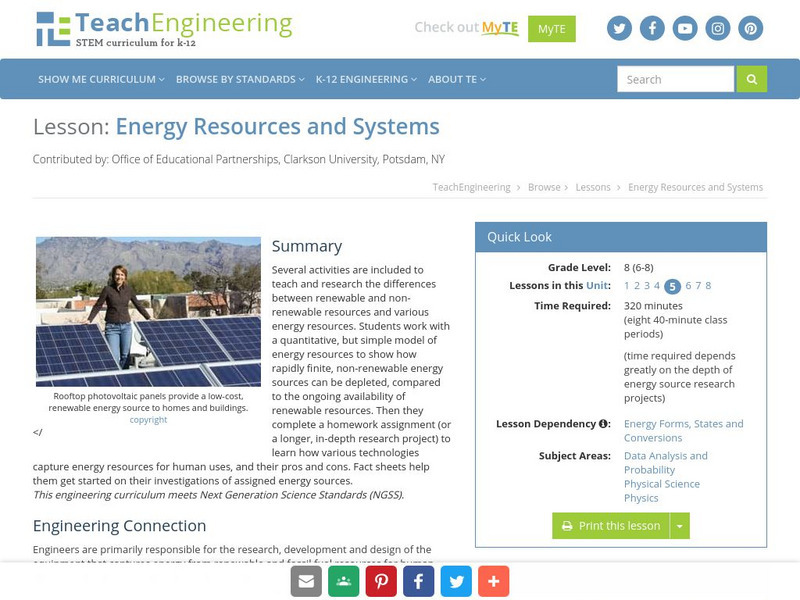Science Buddies
Science Buddies: Pedigree Analysis: A Family Tree of Traits
Some characteristics, like the shape of your hairline, whether your earlobes are attached or detached, and whether or not you have freckles are inherited from your parents. In this science project you will learn about Mendelian traits,...
Science Buddies
Science Buddies: Nothing but Net: The Science of Shooting Hoops
Swish. What a great sound when you hit the perfect shot and get nothing but net. Here's a project to get you thinking about how you can make that perfect shot more often.
Science Buddies
Science Buddies: Liquefaction & Seismic Activity
Earthquake damage can be intensified in areas that are subject to soil liquefaction. For example, in these areas, soil movement may cause foundations to collapse, while structures in nearby areas built on more stable soil or bedrock may...
Science Buddies
Science Buddies: Exploring Fractals
Although fractal images can be intriguingly complex, fractals are more than just pretty pictures. In this project, you'll explore the mathematical properties of the famous Mandelbrot and Julia sets. You'll learn about how these images...
Science Buddies
Science Buddies: An Experiment in Visual Perception
Graphical methods of data presentation are a key feature of scientific communication. This project will get you thinking about how to find the best way to communicate scientific information.
Science Buddies
Science Buddies: Dome Sweet Dome
Geodesic domes are made of interconnected triangles that approximate the shape of a sphere. This project shows you how to build a geodesic dome using rolled-up newspapers and tape and then test how much weight your dome can support.
Science Buddies
Science Buddies: Locating the Epicenter of an Earthquake
When an earthquake happens, how are scientists able to determine the original location of the quake? In this project, you'll use archived data from a network of seismometers to find out for yourself. You'll create your own seismograms...
Science Buddies
Science Buddies: Gigantic Triangles: Measuring Altitude (Inclinometer)
If you've ever wondered how tall that bridge is, or how high your kite was, then this could be a good project for you. You'll learn how you can use the mathematics of right triangles to measure the height of an object with two...
Science Buddies
Science Buddies: Measuring the Earth's Core With Seismic Waves
When an earthquake occurs, seismic shock waves travel out through the earth from the source of the event. The shock waves travel through the earth (body waves), or along the Earth's surface (surface waves), and can be recorded at remote...
Utah Education Network
Uen: Physically Change Shape of Object
Science fair project tests whether students can construct a shape out of clay that will float.
Science and Mathematics Initiative for Learning Enhancement (SMILE)
Smile: Sample Science Fair Judging Forms
Two nice examples of documents you can use for judging science fair projects, one for judge registration, etc. and the other for actual project judging. This particular form comes from the Chicago public schools. Adapt it to your own...
Science Buddies
Science Buddies:testing Compression Waves
Here's a project for studying compression waves in different soil types. It uses a homemade wave tank for solids, with a frequency generator, amplifier, and loudspeaker as the vibration source. There are lots of interesting possibilities...
Science Buddies
Science Buddies: Chain Reaction: Inversion and the Pappus Chain Theorem
Here is a challenging problem for anyone with an interest in geometry. This project requires background research to solve it, but it is an excellent illustration of visual thinking in mathematics.
Science Buddies
Science Buddies: A Puzzling Parallax
Did you know that ancient astronomers could measure the distance to other stars? They could also distinguish between stars and planets. How could they do that without modern technology of telescopes? See if you can discover the link...
Science Buddies
Science Buddies: Juice Box Geometry
Juice boxes are so convenient, just poke the straw in and sip away. It might surprise you how much thought goes into the design and manufacturing of a juice box. Each manufacturer has carefully calculated how big each side should be to...
Science Buddies
Science Buddies: The Bouba Kiki Effect
It may be possible for certain symbolic characteristics, like sharpness and roundedness, to cross language barriers. In this experiment you will investigate the Bouba-Kiki Effect to find out if abstract visual properties can be linked to...
Science Buddies
Science Buddies: Set Your Table for a Sweet and Sticky Earthquake Shake
Earthquakes can have different affects depending on their location. This week long exercise asks you to build a model house and a special table to shake it on, and see how different soil types can amplify shaking.
Science Buddies
Science Buddies: Shape Changing With the Cyber Squad
In this project, you will make 2-dimensional templates, called nets, that fold up into 3-dimensional (3-D) shapes. By making shapes of different sizes, you will be able to see how 3-D shapes change with size. In your findings you will...
Science Education Resource Center at Carleton College
Serc: Mapping Local Data in a Gis
In this activity, learners will learn how to conduct a map-based science research project using a Geographic Information System (GIS). They will design an experiment, collect and record geospatial data, analyze geospatial relationships...
TeachEngineering
Teach Engineering: Energy Resources and Systems
Several activities are included to teach and research the differences between renewable and non-renewable resources and various energy resources. Students work with a quantitative, but simple model of energy resources to show how rapidly...
Orca Book Publishers
Orca Book Publishers: Tj and the Rockets Teaching Guide [Pdf]
Hazel Hutchins has written the TJ series of novels. This teaching guide for TJ and the Rockets, about TJ and his science fair project, includes a book summary, teaching ideas and the author's reflections on writing the book.
Science Buddies
Science Buddies: Scientific Method Data Analysis/graphs
At the end of your experiment you should review all of the data you have collected. See samples of data analysis charts and graphs. Find out what makes for a good chart or graph using the self-grading rubrics.
Alabama Learning Exchange
Alex: Bloodstain Pattern Doesn't Lie
Students will formulate a hypothesis about the relationship (linear, direct, indirect, etc.) between the distance a drop of blood falls and the diameter of the splatter it makes. To test their hypothesis, the students will work...
Science Buddies
Science Buddies: Scientific Method Variables/hypothesis
Find out what variables are in a scientific investigation and what the difference is between an independent, dependent, and controlled variable. Look at samples of different types of variables and find out what makes a good variable.
Other popular searches
- Science Fair Projects Ideas
- Science Fair Projects Topics
- Motion Science Fair Projects
- Coke Science Fair Projects
- Food Science Fair Projects
- Sports Science Fair Projects
- Cool Science Fair Projects
- Csi Science Fair Projects
- Edible Science Fair Projects
- Casi Science Fair Projects




